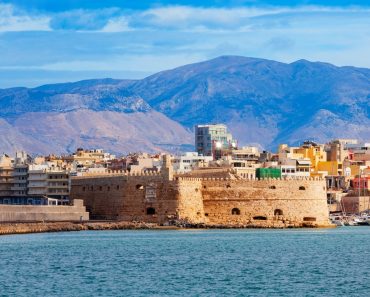Turkey, formerly a go-to spot for affordable getaways, now faces a tough situation: increasing expenses are turning it into a pricey destination for both Turkish citizens and international visitors. Though Turkey’s tourism is expected to generate $64 billion in 2025, several industry reports reveal the sector is dealing with surprisingly low hotel occupancy, fewer tourists, and worries about the quality of entertainment options.
With Turkey’s prices now on par with Dubai, and even exceeding those in Spain and Greece in some instances, the country might lose its edge in the global tourism market.
Rising Costs Erode Turkey’s Price Advantage
In 2025, the tourism sector in Turkey – often called the “smokeless industry” – is encountering some challenges. Increased accommodation prices, which are driven by growing input costs, have made the country an expensive destination for international travelers. A five-day trip for a family of four to popular destinations like Antalya or Bodrum can now be more than 150,000 Turkish lira (€4,000-5,000), whereas similar vacations in Greece and Egypt might cost around 80,000-100,000 lira and 60,000-80,000 lira, respectively. Even with a 20% discount for international tourists compared to locals, a family holiday in Turkey may cost approximately €4,000-5,000, similar to that of Dubai.
Kıvanç Meriç, the Izmir President of the Association of Turkish Travel Agencies, emphasizes the core of the problem: “The economic situation within Turkey is the primary cause of the problems that we are seeing in tourism.” Inflation and rising service costs have diminished profit margins, causing businesses to pass these expenses on to their customers. Meriç cautions that they are receiving complaints about being too expensive and slowly losing favor with international tourists, urging immediate solutions to reinstate Turkey’s affordability.
Declining Visitor Numbers
Even after a successful 2024 season, in which Turkey welcomed 56.7 million visitors – even outperforming Italy to rank fourth worldwide – the Turkey’s tourism sector is displaying some signs of difficulty. The first five months of 2025 experienced a 0.15% decrease in tourist arrivals, with a total of 17.78 million, while May alone saw a 1.81% decline in comparison to 2024. Certain key markets have seen big drops: Russian visitors declined by 5.2% to 1.72 million, German tourists went down 18.1% to 597,348, and decreases were also observed from Bulgaria (3.2%) and England (0.6%).
Hotel occupancy rates haven’t met expectations, compared to prior years, even in upscale destinations such as Belek, known for golf tourism and football club training camps. Burhan Sili, President of the Alanya Touristic Business Owners Association, mentions the significance of balancing cost and quality: “Our profit margins could be severely affected if we don’t. It’s becoming increasingly important for our sector to act cautiously because of rising costs and global competition.”
Entertainment Culture and Image Concerns
Besides pricing, changes in Turkey’s entertainment culture are starting to harm its reputation. Tales of overly expensive experiences, such as the now-infamous “lahmacun” price increases in Bodrum, have now appeared in other resorts, drawing comparisons with Dubai’s luxurious prices. Some tourists have indicated that they are worried about declining service quality and problematic entertainment options, further diminishing Turkey’s appeal. When these issues are combined with the higher costs, tourists might favor cheaper alternatives such as Greece and Egypt.
A Caution for 2025 Turkey’s Tourism Season
The tourism industry is approaching the peak months of July, August, and September with “cautious optimism,” hoping to welcome 65 million tourists and generate $64 billion in revenue, with an average spend of $1,000 for each tourist. Nevertheless, the loss of Turkey’s price advantage, as well as global competition and domestic economic pressures, are jeopardizing these ambitions. Industry leaders are encouraging the implementation of strategic actions to improve affordability and enhance service quality to preserve Turkey’s standing as a premier tourism destination.
Turkey is now trying to compete with more expensive global markets, so the challenge will be to strike a balance between profitability and affordability. Without swift action, the country may lose its current standing and alienate potential visitors. Those watching their wallets might find themselves drawn to budget-friendly options, which could mean losing some ground to competitors, especially in places like the Mediterranean and other appealing destinations.







